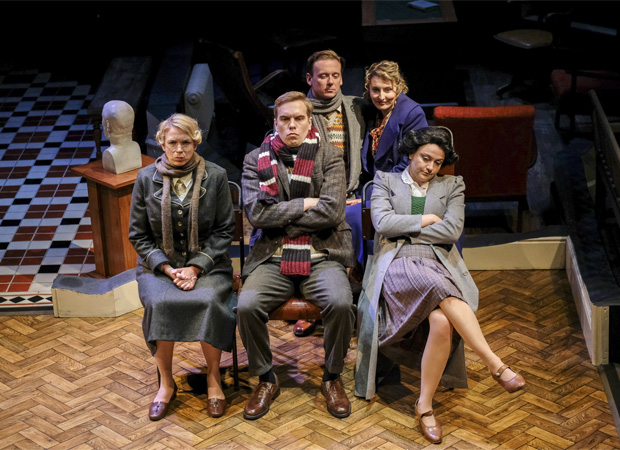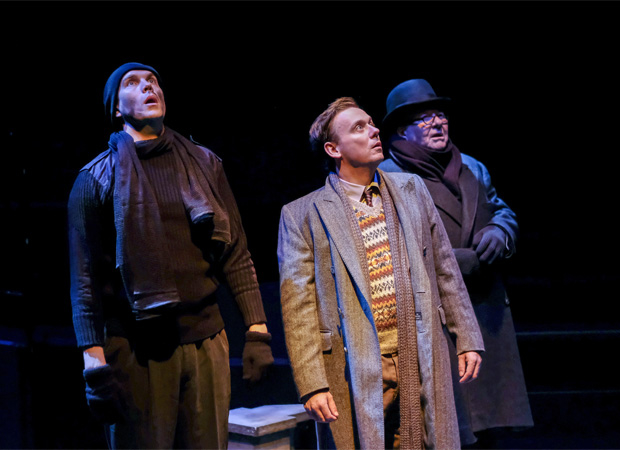Alan Ayckbourn's Latest Play Is a Brief History of His Dramatic Style

(© Tony Bartholomew)
It's safe to say that when you've written more than 80 plays over the course of your career, some will be better than others. The prolific, still-working British dramatist Alan Ayckbourn is bound to have a few less compelling works up his sleeve, and his latest, A Brief History of Women at 59E59 Theaters, is disappointingly one of them.
On the surface, A Brief History of Women (canonically No. 81) is typical Ayckbourn, pushing the boundaries of our theatrical imaginations while exploring English class and gender divides over different periods of time. Unlike his more successful works, however, this one feels comparatively dashed off. It may look and feel like an Alan Ayckbourn play, but A Brief History of Women doesn't have the same impact as his brilliant, genre-bending works like The Norman Conquests and How the Other Half Loves.
For starters, the play is neither brief nor about women (in fact, it treats women rather poorly). Comprising four scenes each set two decades apart, A Brief History follows an unremarkable man named Anthony Spates (Antony Eden) and his decades-long relationship to the stately Kirkbridge Manor house in England.
We first meet Spates when he's a 17-year-old footman for the wealthy Kirkbridge family in 1925. At a jazz-flavored party, Spates comes between the feuding Lord and Lady Kirkbridge (Russell Dixon and Frances Marshall), with dire consequences. In 1945, the estate has been transformed into a preparatory school for girls where Spates, now 37, has become an English teacher romantically entwined with fellow teacher Ursula Brock (Laura Matthews).

(© Tony Bartholomew)
Twenty years later, Spates, 57, finds himself as the administrator of an arts center as its annual holiday panto takes shape around him. Finally, in 1985, the 77-year old Spates takes stock of his life when he meets an old acquaintance at the Kirkbridge Manor Hotel, where he recently retired as manager.
As a director of space, Ayckbourn is eternally skillful, here splitting the action among several different rooms, each of which has its own particular look and sound depending on the time period (Kevin Jenkins designed the impressively adaptable set and traditional costumes). More than a feat of directing, it's a feat of sound design — as actors move from room to room, the din changes as soon as the actors mime a doorknob twist. While composer Simon Slater punctuates each scene with piano-driven Downton Abbey-style underscoring, it feels especially odd that there's no credited sound designer.
As a director of actors, Ayckbourn is less skillful, and the six performances are all over the place, ranging from bombastically funny (Dixon, particularly when he's playing the larger-than-life panto director in 1965) to opaque (Eden, whose character is the definition of cipher). For a play called A Brief History of Women, the female characters end up being the least engaging of the lot, despite the best efforts of actors Marshall, Matthews, and Louise Shuttleworth. They also receive some horrific treatment at the hands of their onstage male counterparts (one is cheated on, another abused, another blown up by a rocket during a fireworks display).
That's more a problem with the script than the direction, though. A Brief History of Women feels a lot like a school assignment where a young dramatist was tasked with writing a play in Ayckbourn's signature style, and walked away with just that, a shadow of a work. Here's hoping No. 82 fares better.










